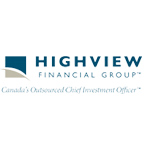 I have two favourite investment truths. First, money does not come with instructions. You can work hard and earn lots of money but if you don’t manage it properly, you could easily outlive it or see it disappear after one or two misguided investment decisions.
I have two favourite investment truths. First, money does not come with instructions. You can work hard and earn lots of money but if you don’t manage it properly, you could easily outlive it or see it disappear after one or two misguided investment decisions.
The second is that working with a financial advisor with investment knowledge whom you trust completely can free you from the stresses shared by investors who try to time the markets and make big bets.
There are more than 90,000 financial advisors in Canada, each with a different approach to managing their clients’ financial affairs. They compete to manage your financial affairs in a hyper competitive arena that includes four channels of advice: Advisors working through full service brokerages, independent financial advisors, career or exclusive financial advisors and those working in branch at financial institutions.
Perhaps the greatest value an advisor can offer is the ability to help you see things objectively and to keep things in perspective and on track. What may seem like a great idea one day can quickly turn into a bad decision. The best advisors not only try to enhance wealth but protect it so that your years of hard work are not wasted.
Here are five important questions to consider when choosing an advisor.
- Is the advisor fully qualified? As well as possessing the necessary professional accreditation, he should have a sound practical knowledge of wealth management and all its associated activities, such as tax, accounting, succession and insurance-related issues. (The majority of advisors are either licensed by respective governing bodies to sell life and health insurance or licensed to sell mutual funds and securities. Some hold more than one license and therefore broaden their range of services.)
- Does the advisor fully understand and accept your goals? Is she willing to take the time to first listen carefully and only then offer ideas that reflect your needs? She needs to acknowledge up front that no one else shares your financial and life goals, which takes a one-size-fits-all approach to financial planning and investing off the table.
- Can you agree to respect each other’s opinions (and time) and carefully weigh each other’s suggestions? You may invest on your own frequently or from time to time and want to be very involved in the management of your investments and the deployment of your long-term financial plan. Your prospective advisor can talk about all they’ve achieved for other clients, but if the mutual respect is missing, the relationship will not work. Your investment needs and not those of other clients should be the focus of each discussion.
- Is the advisor willing to clearly explain all fees and performance benchmarks early in the conversation in a transparent manner? Will he commit to being available and to meeting at pre-determined times for investment portfolio reviews throughout the year? If the response to either questions is, “No” or, “Let’s play that by ear”, find another advisor. Will the advisor provide you with a well –thought-out and clearly written Investment Policy Statement (IPS) as part of your overall Wealth Plan? Your IPS is the blueprint to grow your wealth and is as valuable to you and your advisor as updated navigational charts are to sailors.
- Is the advisor happy to offer the names of clients or professional contacts such as lawyers or accountants who can act as references? Ask all the questions you want to build your comfort level and reach an informed and objective decision – this is no time to be deferential. It’s your financial future under discussion, not the need to please others.
Once you have started working with your advisor, here are two thoughts on how to work most effectively together when you get comfortable.
- Money can be an emotionally charged topic and you need to be cautious when working with an advisor who is also a friend. When business enters a friendship, it’s suddenly about the money as well as the friendship. In this case, business decisions or events that may negatively affect one side are often taken personally and the friendship may abruptly end.
- Your advisor may ask you for referrals, which you may or not be comfortable offering. He may want to manage the assets of members of your social or networking circle. You could find yourself in a difficult spot if you refer him and for some reason, the fit is not there. You are not obligated to offer referrals. However, you are not necessarily in a no-win situation. Try saying, “As a client and a friend, I am grateful for your investment management services. I will do everything in my power to help you reach your goals by referring you when the opportunity arises. We’ve already discussed our expectations of one another and at this stage in our working relationship, I would rather we focus on my investments. We can talk about referrals at our annual performance review meeting.”
If you devote the same amount of time to choosing a financial advisor as you do choosing the right car or vacation spot, you stand a very good chance of being handsomely rewarded for your efforts.
This article was originally posted on LinkedIn.
